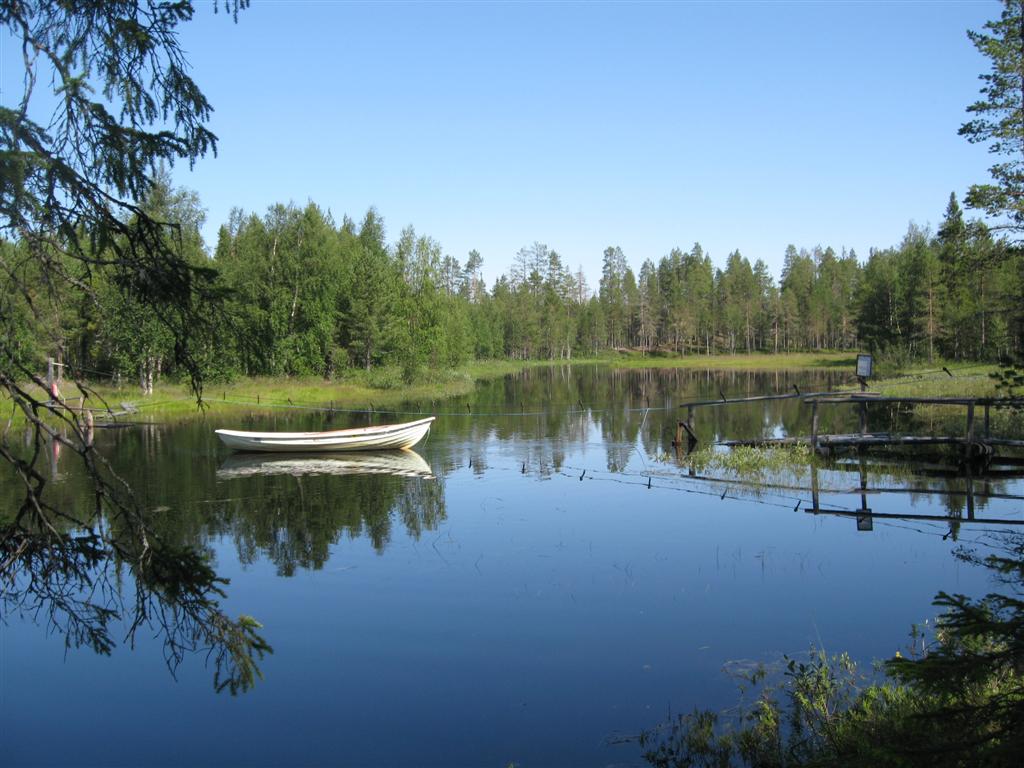Nature cure; a case of living in the moment.
When I read Richard Mabey’s book, Nature Cure, I could feel the how removing himself to a cottage in Norfolk for several months cured him of the ennuie and depression that had afflicted him after completing the mammoth enterprise of Flora Brittanica. The book was like a course of treatment, page by page, healing slowly took place. But what was it, the magic component, the secret ingredient, that brought about the healing? Was it just the rest, distancing himself from deadlines and responsibilities, finding a new sense of meaning in life, adapting to a slower pace, relaxing to the rythms of the day, the seasons. Was it all of the above or none.
I have just returned from the taiga, a wilderness of forest and swamp in Northern Finland. And I began to sense that for me, the essence of nature cure is about living in the present. For years now, or so it seems, I have spent too much time regretting the past or dreading the future. I have analysed endlessly, rationalised, explained, even understood, but none of this has brought peace. I am not denying the pleasures of nostalgia or the excitement of hope, but these are too often tempered by guilt or fear, whereas the present just is. You have to get on with it.
Being out in the wilderness focuses attention on survival. You have to engage with the business of collecting wood, building a fire, preparing a meal, even hunting or gathering, making sure you have shelter for the night, dealing with the midge, getting to the next place or just staying put.
And with nature, there is so much going on all the time, light, weather, plants growing or dying back, animals, birds, the river, the mood of the lake. It’s like a never ending test series, a book you can never put down, but much more so. Nature captivates, asks questions, inspires curiosity, demands engagement.
The book that accompanied my thoughts in Finland was Roger Deakin’s ‘Wildwood; a journey through trees’. In the first section, entitled Roots, he described how his love of nature was kindled by an inspiring biology teacher, who took groups of boys on nature expeditions to the New Forest. Over the course of 8 years, the boys made a detailed ecological exploration of a three mile stretch of countryside near Beaulieu Station. One of their projects investigated the links between the unusual preponderance of the dwarf buttercup, myosurus minimus, and the ancient habit of corralling of wild new forest ponies for selling by the commoners. They discovered how the tramping of the horses hooves and the heavy manuring of the ground destroyed competing plants but is ideal for the buttercup. Another project demonstrated how half of the seedpods of the Needle Whin, Genista anglica, were infected by a weevil, Apion genistae, which was in turn eaten alive by the larvae of a chalcid wasp, Spintherus leguminium. How wonderful to have a teacher who could inspire such curiosity and fascination. When mental energies are focussed on the meaning of the present, there is little time for regret and worry.
Ernest Neal, my biology teacher, might have been an inspiration to me. He probably was. He wrote Woodland Ecology, based on the analysis of a Somerset wood and his dedicated investigation of the intimacies of the Badger led to the discovery of delayed implantation, an ovum fertilised one steamy night in autumn would not implant in the uterus until the following spring. But the nearest I got to ‘understanding the importance of being Ernest’ was when he leant over my dissection of the sex organs of the Dogfish and said with feeling, ‘You know, Read, sex is a beautiful thing.’ In my innocence, I replied with an enthusiasm I considered appropriate for the situation, ‘Yes sir, I suppose it must be.’
The books I read then, I still treasure; King Solomon’s Ring by Konrad Lorenz, The Peregrine by J.A.Baker, The Life of the Robin by R.Lack, all products of detailed observation over a long time, a fascination leading to a complete immersion in the object of enquiry. I got the impression that these authors were happy in their own skin. The same kind of self sufficiency comes through in A Fortunate Man, which describes the author’s life as a country doctor or Oliver Sachs account of his chemical childhood in Uncle Tungsten.
Engaging with life in the present takes you out of morbid preoccupations with the self or a dependence on others and a happiness that derives from a fascination with the external. It takes you out of yourself. But you need courage to let go of the familiar and entrapping and a will to commit to a wider purpose.
For too long, I have sought enlightenment in endless analysis. This has led to a kind of understanding of the human condition. But happiness, health? I question that. The paediatrician and psychoanalyst, Donald Winnicott indicated that the purpose of emotional development was to enable people to be themselves in the company of others. I would suggest that this might be extended to encompass self sufficiency in the natural world too. Perhaps therapeutic camps could help those enmeshed in the misery off their lives. Maybe whittling could be part of an analyst’s stock in trade.



